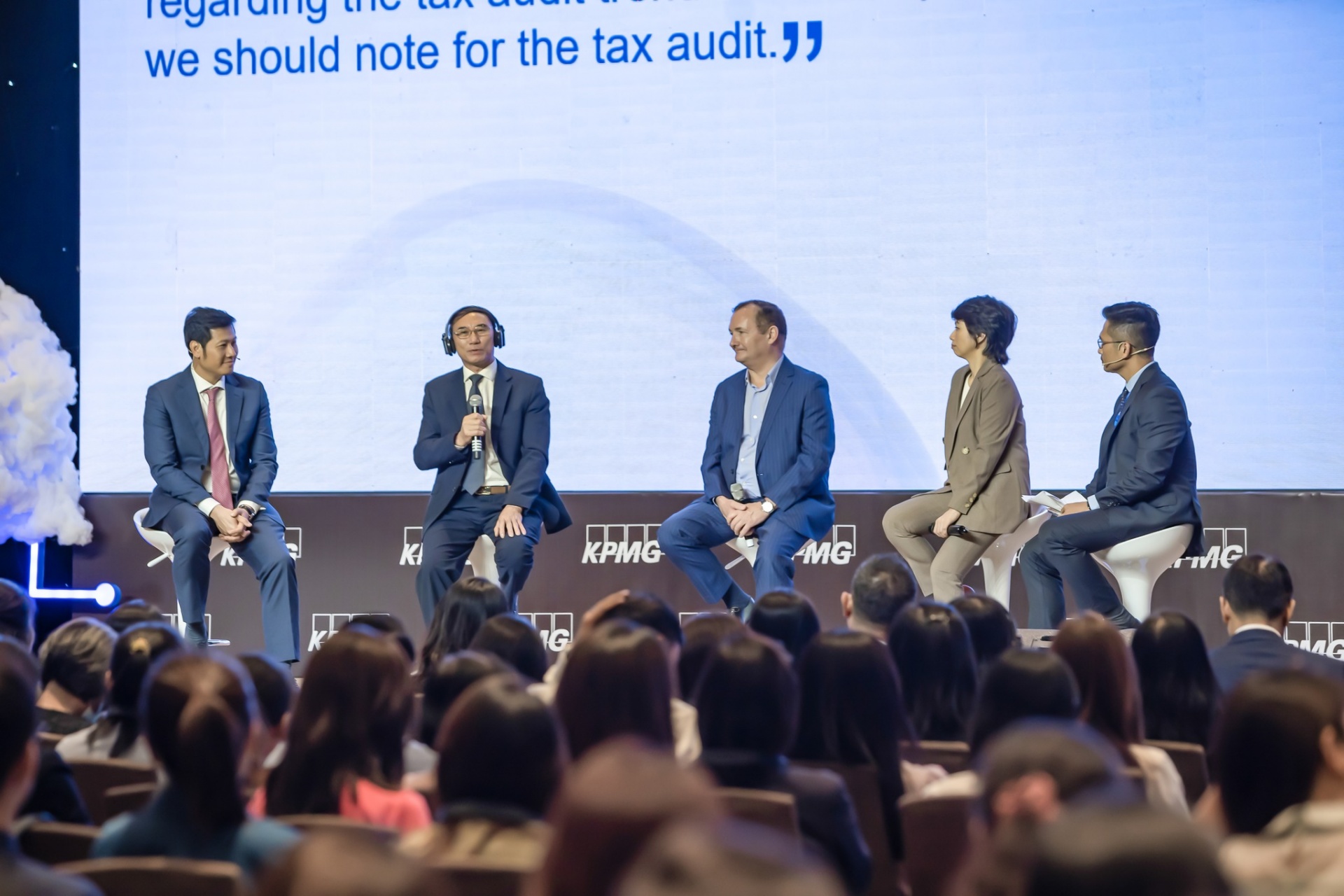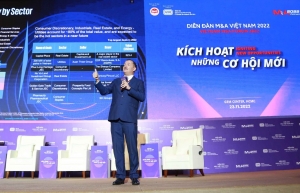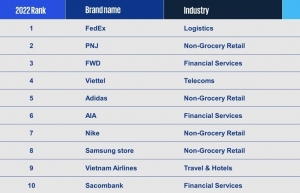Navigating tax concerns for Vietnamese and multinational companies
 |
Do you foresee any major difficulties for Vietnamese and multinational companies (MNCs) in complying with the current tax landscape?
The crisis stemming from the pandemic has caused a subsequent drop in economic activities, unprecedented in modern history. As companies try to get back on their feet, there is certainly cause for concern regarding compliance.
Last year, Vietnamese and MNCs were required to prioritise their resources for anti-pandemic measures. With 2022 as the first year of economic revival, companies are emphasising resuming production and commercial operations while also assuring tax compliance. Businesses, meanwhile, need to adjust quickly from remote/telecommuting to an in-office setting. They must also file and pay their taxes promptly, as law requires.
There have been no major modifications to tax legislation in 2022. Essentially, businesses should continue to implement regulations and guidelines that have been put in place since the 2019 amendments to the Law on Tax Administration. Except for for updates to the details, tax rules governing the primary taxes – corporate income tax (CIT), VAT, and special consumption tax – remain fundamentally static.
Furthermore, people engaging in tax administration or company leaders must adapt to an ever-changing working and management environment, as the tax system has also evolved. Anti-pandemic measures prevented tax officials from conducting inspections, but after Vietnam’s economy reopened, tax and state auditors continued their operational duties.
In other words, inspections ensure that the company is acting in accordance with regulations. In addition to planning to comply with tax finalisation in 2022, businesses should be ready to prepare and examine their tax concerns for inspection for 2020-2021.
 |
| Hoang Thuy Duong, partner and head of Tax at KPMG in Vietnam |
What are some emerging trends in tax audit and inspection?
When assisting businesses in their tax examination and inspection, our experienced corporate tax and government liaison teams at KPMG in Vietnam notice that some tax and legal issues highlighted in previous years would be the major topics for this year, such as VAT refunds. The second concern relates to the expenses firms must incur to combat the outbreak, which is an unusual and unprecedented expenditure.
According to the CIT regulations on expense deduction, the basic principle is that expenses related to production, business activities or revenue generation may be deducted. Such expenses have not to date been specifically mentioned in any tax regulations in Vietnam. Thus, the tax treatment in practice has faced controversial assessment, including various guidance among tax authorities.
Thirdly, transfer pricing is also an intriguing issue that often arises. It used to be the case that tax authorities would scrutinise a company's profits when determining whether they should disclose and pay taxes, especially when there were several transactions involving related parties.
When the pandemic emerged in 2020, many companies mandated isolation and lockdown measures, which disrupted their exports, logistics and supply chain operations, and created a massive shift in working patterns, which affects the bottom line. The industrial sector in particular, saw a significant decline in corporate profitability.
Fresh examinations have also shown different perspectives on adjusting earnings or losses associated with transfer prices. In an extraordinary period like the pandemic, some businesses could incur exceptional or non-recurring costs, and such expenses could be identified and considered. I anticipate this dilemma to persist for the remainder of 2022’s inspections and even into 2023 and 2024.
Digital tax measures have seen an improvement, with the launch of the new portal for foreign providers and a move requiring e-commerce platforms to declare and pay tax on behalf of clients. What is your take on this recent progress?
The subject of how to collect taxes on online purchases and e-commerce activities has been of great interest this year. E-commerce has experienced a boom over the past three years and with that, Vietnam has become a lucrative market for both domestic and international e-commerce players.
In September 2021, the Ministry of Finance (MoF) issued Circular No.80/2021/TT-BTC detailing the implementation of the Law on Tax Administration and Decree No.126/2020/ND-CP dated November 2020. This circular sets out a clearer mechanism for foreign companies to directly register, declare, and pay taxes in Vietnam by themselves or via their authorised representatives. The rule has been in place since the beginning of 2022, while the e-portal to collect tax has been in operation since April.
Currently, there are 42 foreign suppliers and companies enrolling on the e-portal to declare taxes. According to data released by the General Department of Taxation (GDT), Vietnam has earned more than VND 3.44 trillion ($143.5 million) in e-commerce tax. This is a highly encouraging number after only six months. With the ongoing use of the e-portal and circular 80, this is expected to continue to rise.
There are still some issues that need clarification. We hope that the GDT and the MoF will issue such guidance so that foreign suppliers can proactively declare and pay tax correctly and fully.
Some of the focus in the CIT reform strategies include incentives for smaller businesses, which are the backbone of Vietnam’s economy, and adopting BEPS standards. How do you assess the impact of this adjustment on foreign-invested enterprises?
The introduction of a global minimum corporate tax on the foreign profits of MNCs is anticipated to alter Vietnam’s tax framework. According to current investment and CIT legislation, CIT incentives are applied to a variety of sectors and areas, and new investment in certain industries and regions could receive reduced CIT rates and/or tax breaks.
Vietnam has inked a framework agreement to implement BEPS standards with two pillars. Now that the global minimum tax rate of 15 per cent has been agreed in principle, tax advantages offered in Vietnam, such as preferential tax rates or tax exemption/reduction, may no longer benefit MNCs that come within the Pillar II guidelines. Taxpayers that have less than EUR750 million in consolidated revenues are not in scope of the Pillar II rules.
Besides Vietnam, other EU countries including France, Germany, Italy, and the Netherlands have declared their intention to implement a global minimum corporate tax of 15 per cent. The US has also enacted into law its minimum corporate tax rate of 15 per cent, while South Korea, Japan, and Singapore are examining the issue.
There are two significant concerns in Vietnam: first is how to handle the remaining period for a licensed project which received tax incentives as committed in the first place. Moreover, it is of utmost importance for the government to study the impact of the new minimum tax rates thoroughly. If Vietnam does not reform its tax incentive schemes, we risk falling behind other regional peers in the race to attract foreign direct investment.
At the same time, a balance must be maintained to stimulate investment in key industries and areas. This is a major issue. According to our observation, there will be a one-year delay in the legislation of these rules. This new tax rate could come into effect in 2024. A number of nations have launched legislative efforts, as I mentioned earlier. Vietnam is expected to update its investment legislation and CIT law about incentives in 2023-2024 to conform to these international practices.
How do you think these tax changes will affect Vietnam’s business landscape?
The global and macroeconomic environments are undergoing significant changes. We need to evaluate the impact of tax reforms in this context. In terms of the global environment, Vietnam has been deeply integrated into the global value chain. The disruption to the global supply chain is still lingering due to geopolitical tensions, affecting many businesses and exporters.
With regards to the macroeconomic environment, exporters have been hit by high inflation in major export markets such as the EU, the US, and China. All of these factors affect the demand for Vietnamese export goods and the profits businesses will declare and pay. Amid global economic uncertainties, businesses also risk incurring losses or going bankrupt.
Two major tax changes are on the way. First is the BEPS minimum standard related to the digital economy. Second is the issue of climate change, which prompts businesses to adopt environmental, social, and governance criteria. Vietnam is committed to achieving net-zero carbon emissions by 2050, so the country needs to change its tax policy and strategy to fulfil this commitment.
Vietnam’s major trading partner, for example, the EU, has introduced the Carbon Border Adjustment Mechanism that imposes taxes on imports of goods from six emissions-intensive sectors, from all third countries, deemed at greater risk of carbon leakage into the EU customs territory: electricity, iron and steel, cement, aluminium, fertilizers and hydrogen,
These tax changes will affect two groups of businesses in Vietnam. MNCs are investing and doing business in the country for export and domestic consumption. Meanwhile, Vietnamese enterprises operate not only in the local market but also in foreign markets.
However, some factors still have not been assessed regarding the risks of high inflation, recession, and the application of new tax standards in the medium and long term. This poses a major problem for the MoF and the government to handle the upcoming tax changes.
The views and opinions expressed herein are those of the authors and
do not necessarily represent those of KPMG in Vietnam.
 | M&A opportunities in a volatile market The consumer, industrial, real estate, energy, and utilities sectors were the most sought-after targets in 2022-2023 when split by industry. |
 | KPMG expands legal services in Asia Pacific More than 275 lawyers across Southeast Asia are set to join KPMG legal firms, giving the global organisation an extensive legal footprint in Asia Pacific, bringing coverage globally to 84 jurisdictions. |
 | KPMG launches 2022 Vietnam Customer Experience Excellence Report A new KPMG report identifies the leading performing brands and industries providing exceptional experiences from the consumer's point of view. |
What the stars mean:
★ Poor ★ ★ Promising ★★★ Good ★★★★ Very good ★★★★★ Exceptional
 Tag:
Tag:
Related Contents
Latest News
More News
- KPMG launches tariff modeller in Vietnam to navigate US tariff risks (July 29, 2025 | 12:11)
- Removing hidden barriers to unlock ASEAN trade (June 29, 2025 | 11:31)
- New report charts path for Vietnam’s clinical trial growth (May 21, 2025 | 08:58)
- TTC Agris strengthens market position with investment in Bien Hoa Consumer JSC (May 19, 2025 | 10:14)
- World Bank to help SBV build shared database for banking industry (April 09, 2025 | 08:55)
- New trade alliances and investment hubs are redefining global power dynamics (April 03, 2025 | 17:00)
- ACCA and KPMG forge path for business leaders to pioneer ESG excellence (March 07, 2025 | 10:09)
- VietBank signs MoU with KPMG (February 26, 2025 | 18:47)
- Warrick Cleine MBE: an honour for services to British trade and investment in Vietnam (December 31, 2024 | 20:16)
- KPMG report offers fresh insight into leveraging AI (December 24, 2024 | 09:23)






















 Mobile Version
Mobile Version